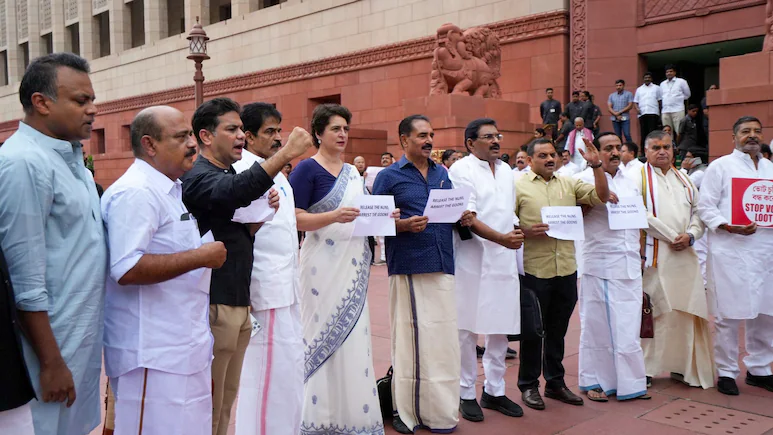In a case that has sparked intense political and religious debate across India, a sessions court in Chhattisgarh has refused to hear the bail application of two Kerala-based Catholic nuns — Sister Preeta Mary and Sister Vandana Francis — arrested on charges of forced religious conversion and human trafficking.
The nuns were taken into custody on July 25 at the Durg railway station, following a complaint lodged by Ravi Nigam, a local Bajrang Dal member. They were accompanying three tribal women from Narayanpur district to Fatima Hospital in Agra, where the women were scheduled to receive training and employment. The women and their families have categorically denied any coercion or forced conversion, stating their decision to travel was made independently.
Jurisdictional Hurdles and Legal Complications
On Wednesday, the Durg Sessions Court stated it could not entertain the bail petition, citing lack of jurisdiction due to the inclusion of human trafficking charges under the NIA Act. The court directed the matter to be presented before the NIA Court in Bilaspur, thereby keeping the nuns in judicial custody for the time being.
Nationwide Political Fallout
The case has set off a political storm in Kerala, with ripples reaching Delhi. A rare consensus emerged across party lines, as both the ruling Left Democratic Front (LDF) and the opposition United Democratic Front (UDF) joined Christian community leaders in strongly condemning the arrests.
Kerala Chief Minister Pinarayi Vijayan described the arrests as “deliberate harassment based on a false complaint” and accused right-wing organizations of stoking prejudice against Christians. “The same people who enter Christian homes with cakes are now hunting down nuns,” he said.
Meanwhile, Congress MP Priyanka Gandhi, speaking in Parliament, claimed the nuns were “ill-treated and falsely accused,” emphasizing that minorities and women were being targeted under the guise of law enforcement.
Parliament Protests and Religious Outrage
In a powerful show of dissent, MPs from Kerala staged protests outside Parliament, demanding the unconditional release of the nuns. Leaders highlighted what they allege is a growing pattern of religious intolerance and systemic harassment of minorities.
Christian organisations and Church leaders, including Cardinal Baselios Cleemis, Archbishop of Thiruvananthapuram, condemned the denial of bail. “This raises serious concerns about the motives behind such actions. The silence and contradiction in political responses are alarming,” he stated.
Mixed Reactions Within BJP
While the Chhattisgarh government, led by Chief Minister Vishnu Deo Sai and Deputy CM Vijay Sharma, maintains the investigation is proceeding lawfully and respects due process, a contrasting tone has emerged from within the BJP.
Kerala BJP President Rajeev Chandrasekhar expressed support for the nuns, suggesting their arrests may be the result of a “misunderstanding”, and affirmed that the party stands with them.
Legal Context: What the Charges Say
The charges filed against the nuns include:
-
Section 143 of the Bharatiya Nyaya Sanhita (trafficking of persons)
-
Section 4 of the Chhattisgarh Religious Freedom Act, 1968 (prohibition of forced religious conversions)
Legal experts suggest that the transfer of the case to the NIA court adds further delays to an already complex and politically charged matter.
Conclusion: A Test Case for Religious Freedom and Judicial Integrity
The Kerala nuns religious conversion case is fast becoming a litmus test for India’s commitment to religious freedom, minority rights, and judicial integrity. As public outrage continues to mount, and national political leaders engage in blame games, the spotlight remains firmly on the judiciary to deliver impartial justice.
With the case now heading to the NIA Court in Bilaspur, all eyes are on the upcoming hearings, which will determine whether justice is truly being served — or if, as critics argue, it is being manipulated for political gain.



